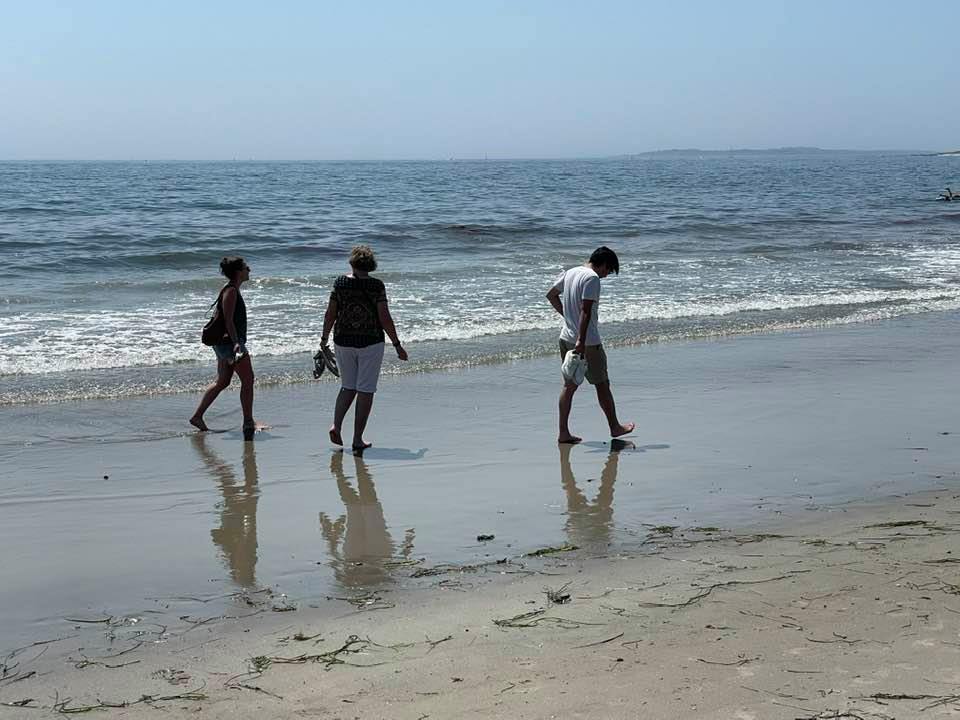AUGUST 7, 2021 – For me and a family member of far greater stature than I, today starts yet another year around the sun. Yesterday, I closed out my 66th year with an excursion up the Connecticut shore from Old Saybrook to Watch Hill, RI, then back to our base in Chester. Highlights included a lobster roll lunch, homemade ice-cream, strolls down picturesque streets, happy hour on the rooftop of a swanky Mystic establishment, and a fancy dinner down the same street.
But the pinnacle was at sea level—a walk along Watch Hill’s “infinity” beach. As a visitor from the heart of the continent, I’m impressed by the sea—the power of its vastness, beauty, and unremitting surf. Mountains project power as well, but they stand motionless, and from outer space or even the cruising altitude of an airliner, mountains diminish in appearance and effect. Oceans do the opposite. They expand and remind me of the first lesson of geography: three-quarters of the earth’s surface is covered with seawater.
I delighted in the roar of each wave as it collapsed upon the beach then dissipated into a sheet of water rushing around my ankles. As I peered across the sunbathed waters, I saw the faint outline of Fishers Island to the southwest and Block Island to the southeast. Several pleasure craft—oversized in port but miniature at sea—flirted with the hazy horizon.
We were neither alone nor crowded. A person here, a couple there, a family yonder, and gulls aplenty—squawking, crooning, crying, laughing at us and one another but mostly into the light breeze. They were an artist’s touch until they ruined the painting by vandalizing a bag of Doritos that a sunbather had left unattended while bathing in the sea.
After our ramble along Neptune’s line, I happened to read about a report of the UN International Panel on Climate Change to be published Monday. The work explains the definitive, causal link between human activity and climate change. Of immediate, critical concern is a near loss of stability of “AMOC”—Atlantic Meridional Overturning Circulation—scientific jargon for “Conveyor Belt Effect of the Gulf Stream.” Heavy rainfall and glacial melt have reduced the salinity of Atlantic waters, which effect disrupts the Gulf Stream. The net effect is interruption of (a) global weather patterns; (b) heat dispersal; and (c) circulation of nutrients. Seawater will rise faster, affecting directly untold millions and indirectly, many millions more. The climate change loop will accelerate.
For years, scientists weren’t certain whether the destabilization of AMOC was human-caused or “natural.” With better data and analysis, the verdict is in: We were in control of our destiny, but in upon the wheels of ignorance and neglect we now hurtle down a steep incline, our feet tied to the accelerator and our hands cuffed behind our backs.
As we weaved in and out of traffic on I-95, I worried about the disruptive power of a destabilized sea. Will our revolution that needs to be, come soon enough?
(Remember to subscribe to this blog and receive notifications of new posts by email.)
© 2021 by Eric Nilsson
